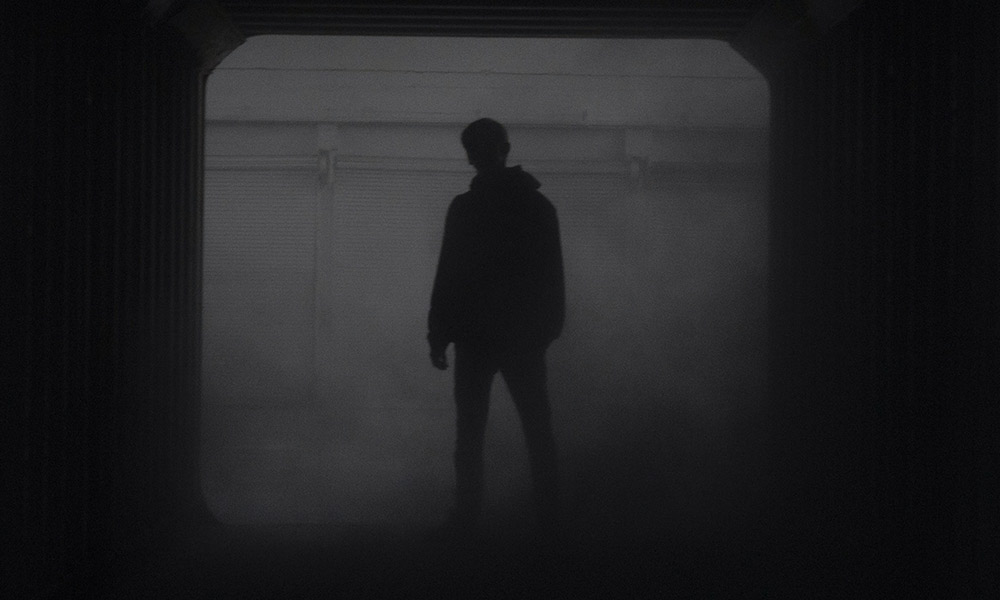Who is the god of trap? Meet the artist revolutionizing today’s music
Urban music has undergone a significant transformation in recent years, and one of the artists leading this change is the so-called “god of trap.” With his innovative music and unique style, this artist has captivated millions of fans worldwide and has become an influential figure in the current music scene. But who is the god of trap? In this article, we will delve into the life and work of this urban artist and popular singer and discover how he has revolutionized today’s music with his talent and dedication. Join us on this journey to get to know the artist behind the phenomenon and discover how he has conquered the world of trap.
The beginnings of the god of trap: his path to the top of urban music
Despite his family not having the resources to provide him with a formal music education, he persevered in his passion and taught himself to play various instruments.
It was during his adolescence that he discovered his love for rap and trap, and he began writing his own lyrics and recording his first songs in a home studio. However, he initially did not experience much success and had to face numerous obstacles to make a name for himself in the music scene.
Despite the difficulties, he persisted and worked hard to continually improve his music and style. Over time, he started gaining followers on social media and performing at small concerts in his hometown. This is how he gradually built his career in urban music and gained recognition in the local scene.
Finally, his talent caught the attention of important figures in the music industry, and he managed to sign a record deal that allowed him to release his first album. Since then, he has established himself as one of the most influential artists in urban music and has inspired a new generation of musicians to follow in his footsteps and pursue their dreams.
The early life of the god of trap: how did his childhood influence his music?
His childhood was instrumental in his development as an artist and in shaping his musical style. Born in a humble environment, he grew up surrounded by the music that resonated in his community, and from an early age, he demonstrated a great interest and talent for music.
From a young age, he began experimenting with different instruments and creating his own music. Despite not having access to a formal music education, his dedication and passion for music led him to explore various genres and styles, from the traditional music of his country to rap and hip-hop.
In addition, his childhood was marked by various difficulties and challenges, which were reflected in his music. He found in music a way to express his experiences and emotions, and to connect with his audience through lyrics that speak about street life, daily struggles, and personal growth.
The early influences of the god of trap: which artists inspired him?
He has mentioned in various interviews throughout his career that he has been influenced by a wide range of artists and musical genres. In his beginnings, he drew inspiration from classic 90s rap and hip-hop, such as Tupac, Notorious B.I.G., Wu-Tang Clan, and Nas. He has also cited artists like Eminem, 50 Cent, and Jay-Z as influences, who made a significant impact on the genre’s history.
However, he has explored and fused elements from various genres and musical styles, resulting in his own unique and original sound. In addition to rap and hip-hop, he has incorporated elements of electronic music, reggaeton, R&B, and rock into his music.
He has also mentioned being influenced by Latin artists like Daddy Yankee, Don Omar, and Tego Calderón, who have left their mark on Spanish-language urban music. He has also acknowledged the influence of Latin trap, which has gained popularity in recent years thanks to artists like Bad Bunny and Anuel AA.
The early steps in music: the beginning of the god of trap’s career.
He started gaining recognition in the local music scene through his performances at small events and parties in his neighborhood. It was during this time that he began developing his own musical style, fusing elements from different genres to create a unique and authentic sound.
His first album was independently released and quickly garnered attention on social media. His lyrics, which spoke about street life and personal experiences, resonated with a broad and diverse audience.
Over time, he continued to work diligently on his music and artistic career. He collaborated with other artists and producers, allowing him to expand his sound and reach new audiences. He also began touring different cities and countries, solidifying his position in the urban music scene.
The music of the god of trap: a fusion of innovative genres and styles
His music has become one of the most prominent phenomena in urban music today. His sound is a fusion of carefully selected and combined genres and styles, creating a unique and distinctive sound.
In his music, you can find elements of classic rap and hip-hop, but there are also influences from other genres such as electronic music, R&B, rock, and reggaeton. This combination of sounds has been key to his success and has led to the creation of an innovative and fresh music style.
The lyrics of his songs are also a fundamental component of his music. In them, the god of trap talks about his life on the streets, violence, drugs, and other topics that are common in urban music. However, there are also deeper themes such as love, friendship, and personal growth.
In addition to his music, he has also managed to create a unique and distinctive image that has helped him stand out in the music scene. His fashion style, presence on social media, and charismatic personality have been key elements to his success.
The unique sound of the god of trap: how has it evolved throughout his career?
In his early productions, his sound was raw and direct, with explicit lyrics that spoke about street life and the struggles he had to face. His style was based on simple rhythms and melodies, targeting a young and passionate audience.
Over time, he started to experiment with different musical genres, incorporating elements of rock, electronic music, and R&B into his productions. This evolution in his sound was evident in his second studio album, which showcased a more sophisticated and mature sound compared to his debut.
Furthermore, he has collaborated with a wide range of artists throughout his career, from established musicians to emerging talents in the urban music scene. These collaborations have helped expand his style and sound, incorporating new influences and elements into his music.
The fusion of genres in the music of the god of trap: what styles has he incorporated into his music?
In his early works, he focused primarily on trap, a genre characterized by its electronic rhythms and explicit lyrics. However, as his career progressed, he started experimenting with other genres, including R&B, rock, and electronic music.
One of the standout elements in his music is the incorporation of electric guitar melodies and drums in his productions. These elements are more evident in his more recent albums, where he has explored a more rock-oriented sound, blending trap with rock elements.
He has also incorporated R&B into several of his productions, giving his music a more melodic and emotional sensibility. Additionally, he has collaborated with various electronic music artists, leading to the inclusion of electronic elements in his music, including the use of synthesizers and sound effects.
The music production behind the god of trap: who is behind his innovative sound?
One of the most important producers in his career is his long-time collaborator, a renowned urban music producer who has worked with several major artists in the music industry. Together, they have produced many of the god of trap’s most popular hits and have been key in creating his unique sound.
In addition to his regular collaborator, he has worked with various electronic and rock music producers on his recent projects. These producers have been instrumental in the evolution of his sound, as they have incorporated elements from other genres into his music.
In the production of his music, he has also been known to use state-of-the-art technology, including music production software and high-quality recording equipment. This has allowed for the creation of an innovative and distinctive sound in his music.
Furthermore, he has been a highly involved artist in the creative process of his music, contributing ideas and direction in the production of his albums. His focus on music production is a key aspect of his success as an artist, as it has allowed his music to stand out in a highly competitive industry.
The influence of the god of trap in the current music scene: a paradigm shift in the urban genre?
The god of trap has been a key figure in the emergence of Latin trap, a subgenre of trap that has gained popularity in recent years. His songs have been an inspiration for a new generation of Latin artists who seek to experiment with new sounds and styles.
Furthermore, his focus on music production and the creation of a unique sound has influenced many artists who aim to stand out in a highly competitive industry. Many artists have been influenced by his production style and have incorporated similar elements into their own music.
He has also been recognized for his ability to collaborate with other artists, both in music production and song creation. His willingness to work with artists from different genres has allowed for the creation of new musical fusions and has inspired many artists to experiment with different sounds.
The impact of the god of trap on the music industry: how has it transformed the urban genre?
One of his major contributions has been his influence on the rise of Latin trap. This subgenre has gained popularity in recent years thanks to the blend of urban and Latin rhythms, and his music has been a major inspiration for its development.
Additionally, he has transformed the urban genre by fusing different styles of music, such as hip-hop, R&B, and electronic music. His focus on music production has allowed for the creation of a unique sound that has influenced many artists striving to stand out in a highly competitive industry.
Another one of his contributions has been his willingness to collaborate with other artists and music producers. This collaboration has led to the creation of new musical fusions and has contributed to the development of new subgenres in urban music.
The critical and commercial reception of the god of trap’s music: what do experts and fans say?
In terms of commercial reception, he has had several singles that have garnered a large number of streams on streaming platforms and topped charts in different countries. This demonstrates that his music is popular not only in his home country but also internationally.
As for the critics, many experts have praised his ability to merge different genres and create a unique sound. They have highlighted his skill in incorporating elements of electronic music, R&B, and hip-hop in his music, which has allowed him to stand out in a highly competitive industry.
On the other hand, some critics have questioned the lyrical quality of his music, arguing that he focuses too much on production and not enough on the lyrics of his songs. However, most of the artist’s followers value the production and rhythm of his music more than the lyrics.
The legacy of the god of trap: how has he influenced the music of other artists and popular culture in general?
Regarding music, the god of trap has been cited as a major influence by many emerging artists in the urban genre. His ability to fuse genres and create an innovative sound has inspired many artists to experiment with different styles and create their own unique music.
On the other hand, his impact on popular culture has also been reflected in his fashion style, which has been imitated by many followers and other artists in the urban genre. Additionally, his presence on social media has been influential, becoming a key figure in promoting music through platforms such as Instagram, YouTube, and TikTok.

FAQs:
Who is the god of trap?
He is an urban music artist recognized for his unique style of merging different genres and styles.
Where is the god of trap from?
He is originally from Latin America.
What is the real name of the god of trap?
The real name of the god of trap is unknown as the artist keeps their identity anonymous.
How did the god of trap start his music career?
He started his music career in his adolescence by producing music and sharing it on online platforms.
What is the musical style of the god of trap?
He fuses different genres and styles, creating a unique sound that combines elements of trap, hip-hop, reggaeton, rock, and electronic music.
Who has influenced the music of the god of trap?
He has cited several artists as influences, including Kanye West, Travis Scott, Drake, Daddy Yankee, and Guns N’ Roses, among others.
How has the music of the god of trap been received by critics and the public?
His music has received positive reception from both critics and the general public, with many praising his ability to merge different genres and create an innovative sound.
How has the god of trap influenced music and popular culture?
He has influenced many emerging artists in the urban genre, inspiring them to experiment with different styles and genres. Additionally, his fashion style and presence on social media have also had a strong influence on popular culture.
CONCLUSION:
The god of trap has become one of the most influential and innovative artists in contemporary music, thanks to his unique style and ability to merge different musical genres in his work. From his humble beginnings to his current position at the top of the music scene, he has proven to be a revolutionary artist and a true pioneer in the urban genre.
Through his lyrics and innovative sound, he has managed to influence the music of many other artists and has inspired a new generation of musicians to follow his example and explore new possibilities in the world of trap and urban music.
In summary, the god of trap is a unique and visionary artist who has left an indelible mark on contemporary music. His legacy will continue to inspire and motivate future generations of artists to innovate and experiment, and his name will always be synonymous with creativity, passion, and originality in the world of music.



